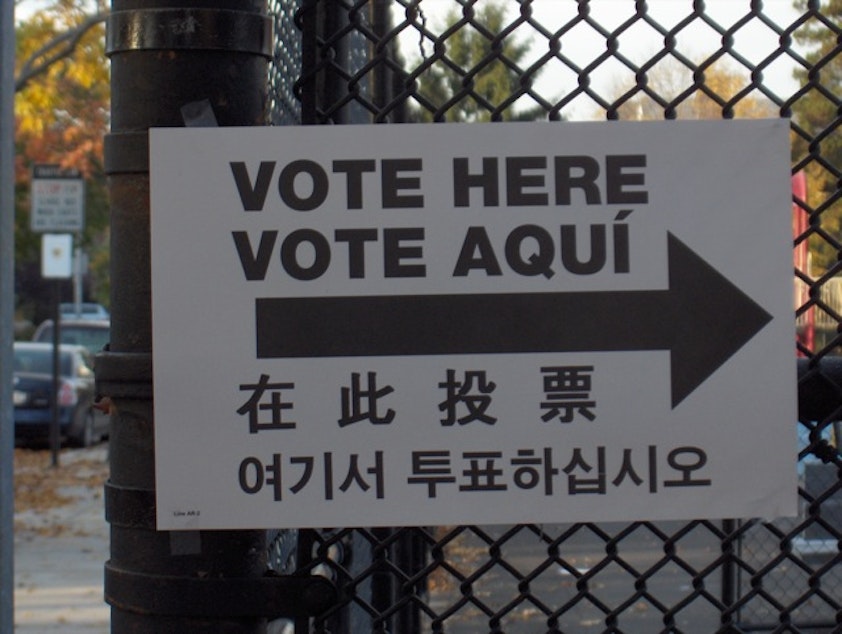Round Two For Washington Voting Rights Act

Do people vote based on race? That’s a question the Washington Legislature will likely tackle this session, as supporters of a state Voting Rights Act prepare to push the measure again this year. The law would aim to strengthen minority representation in places with a large population of Latinos or other racial group.
Backers of the legislation point to voting trends on the east side of the Cascades. In the 10 most heavily Latino counties in Eastern Washington, Latinos comprise about a third of the population, but they only hold 4 percent of the elected offices.
University of Washington Professor Matt Barreto directs the Washington Institute for the Study of Ethnicity and Race. He says Washington has one of the lowest levels of minority representation in the country. He likens it to the civil rights era in the South.
"There were cities in Alabama and Mississippi in the 1950s and '60s that were 80 percent Black and had no Blacks on the city council," Barreto said. "We have that same thing with Latinos in Central and Eastern Washington in the year 2013, and I think people need to think about that. How did that happen? What system have we created that allows that to happen?”
Barreto says these lopsided outcomes can be a symptom of at-large elections, for example, where candidates run citywide or across an entire school district. He says if areas are broken up into smaller districts, the people elected would more closely mirror their constituents.
Sponsored
People can already challenge local voting systems in federal court, but supporters say a state law would make the process much faster and cheaper.
California is the only other state with its own Voting Rights Act, which was enacted in 2001. Dennis Meyers, with the California School Board Association, says one big downside is a financial burden on school districts -- some have faced six-figure legal fees if they’re out of compliance.
“It really doesn’t matter what size your school district is, it’s going to have an impact," Meyers said. "It creates quite a shock and quite a stir in the community.”
David Perez, a Seattle attorney who helped write Washington’s proposed Voting Rights Act, said they tried to improve on California’s law. He said the Washington version aims to avoid, or greatly reduce, any legal costs for local governments that face challenges to their electoral systems.
Last session in Olympia, the Voting Rights Act passed out of committee but failed to get a vote on the House floor.

